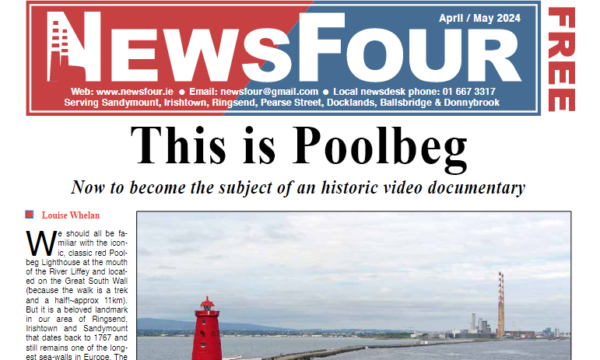Ok, hopefully we have come to the end of this pandemic, but when we look back and examine the response to it there are some worrying signs. According to a Healthy Ireland Survey brought out at the end of 2021, 30 percent of people reported a worsening of their mental health during the pandemic, with women and those aged over 50 suffering most. A lot of this was brought on due to worry and stress about the virus. But the reverse is true too, in that the pandemic itself elicited latent anxiety in people. Sometimes amidst all the noise around mental illness and the pandemic we need to remind ourselves that mental health was an issue before there was covid. It didn’t come with the virus. And with our under-funded HSE and a health system in crisis it never received the attention it merited.
What is quite alarming looking back on this now is the swiftness with which human rights were blithely swept aside, and perhaps equally disturbing the way we, as a nation, meekly acquiesced to this. It seems when the reasons presented to us are strong enough we are prepared to jettison deeply cherished freedoms, including freedom of assembly, the bedrock of democracy itself. A very dangerous precedent that could, if left unchecked become an easy conveyance when the next crisis, whatever it is, comes along. There is a saying that freedom is only one generation from being lost. Let us not be that generation.
The Irish Council for Civil Liberties in a statement to an Oireachtas Joint Committee on Justice last June said some of the measures the government brought in “involve very significant interference with human rights,” particular they pointed out people being confined to homes, and the damage to the good work An Garda Síochána had built up as community policing by consent, by having them enforce these new strict measures.
The context all this took place in was of course Covid, and the teleological argument to prevent people getting sick and dying was sound. No reasonable person will deny the existence of the virus, and the potentially devastating consequence that airborne viruses can unleash, and only the most selfish would object to some form of restrictions. But maybe there was another way to manage it. Voluntary participation instead of legislation might have been a better route to go.
When the pandemic first struck people naturally gave others the space they needed, many volunteered not to go out socialising, or chose to wear masks in public before it became compulsory; and we saw the outpouring of good will in the form of food parcels delivered to those who needed them. It’s when something becomes mandatory that resistance arises. In any crisis, be it fire, a natural catastrophe, or even a virus it’s almost in our DNA to look after each other, particularly the elderly and most vulnerable. There are many lessons to be learned from this whole Covid-19 crisis, not least to make the proper funding of our Health Services a priority; let’s hope they will be learned.



